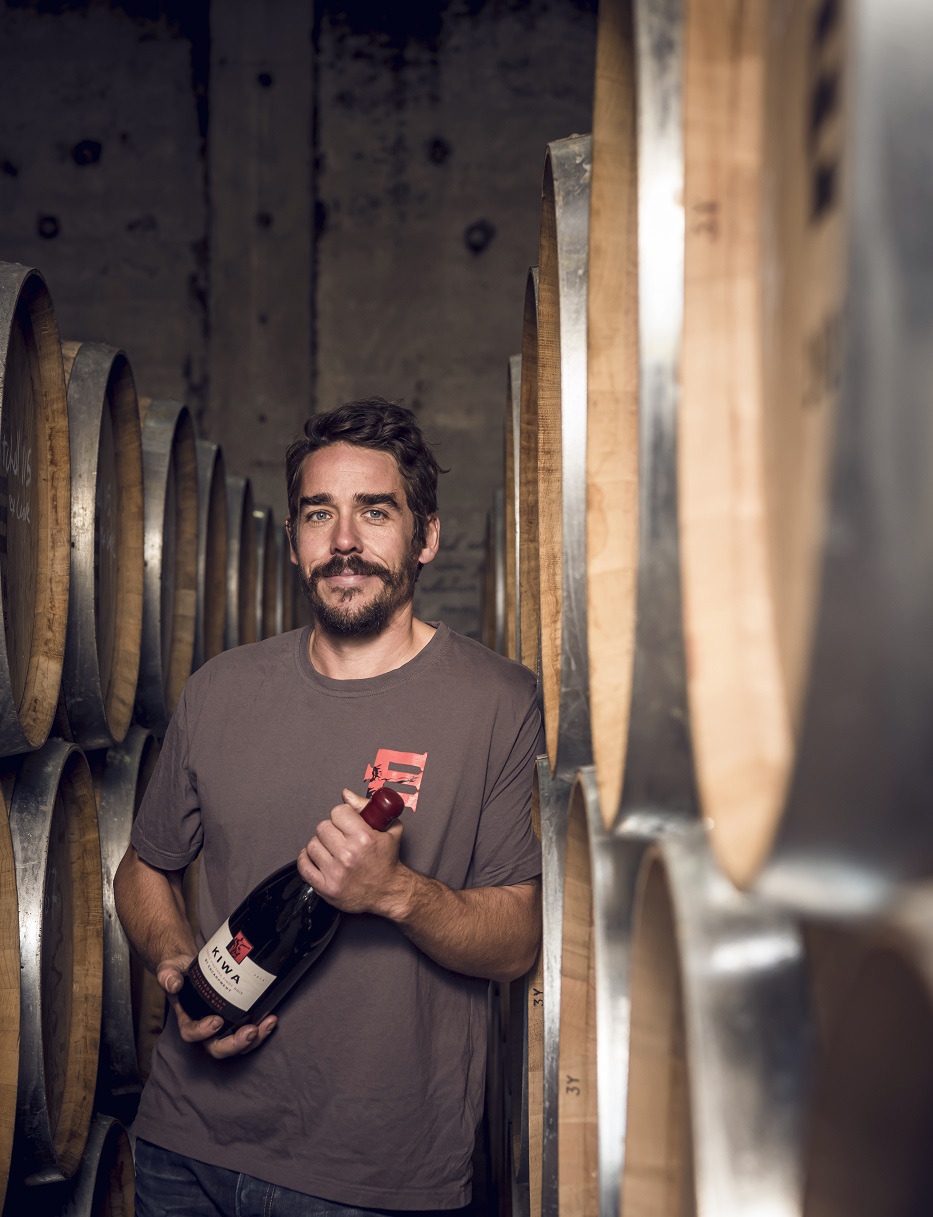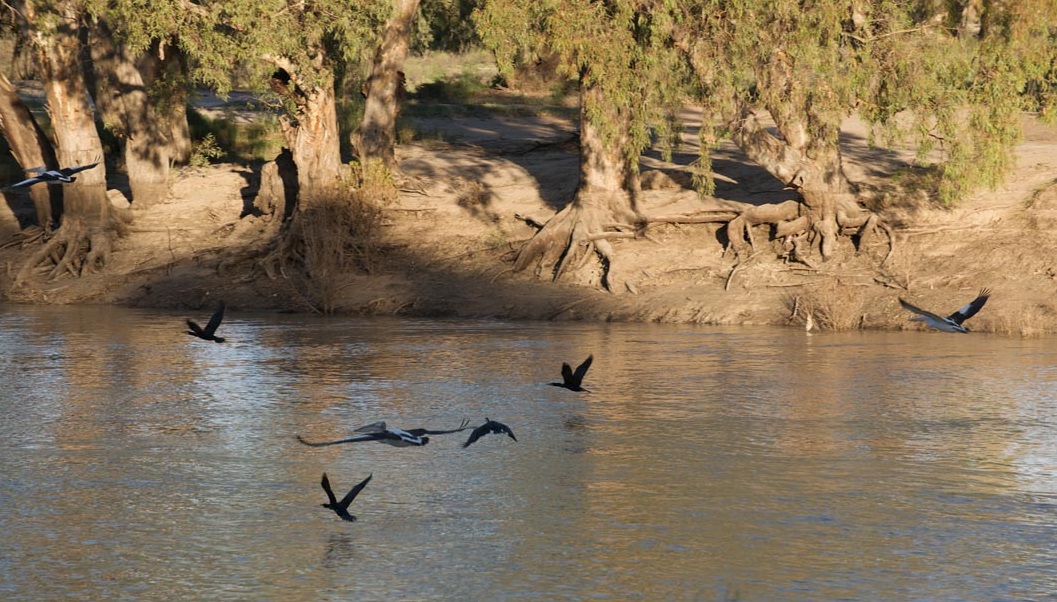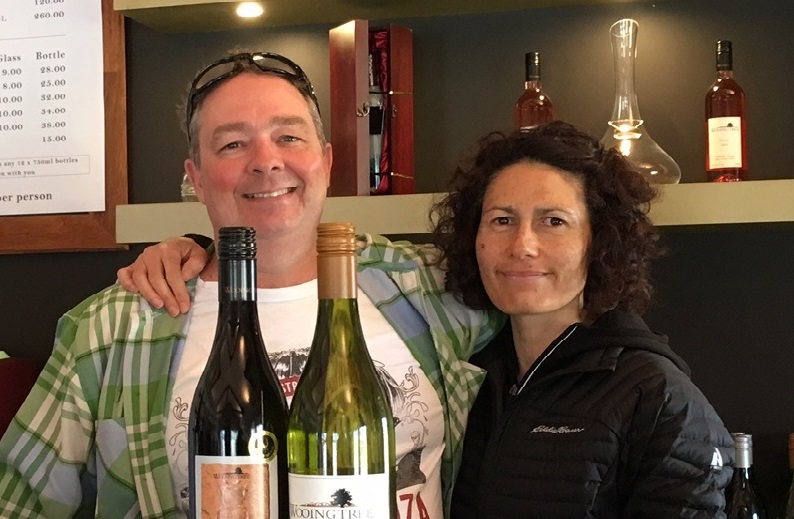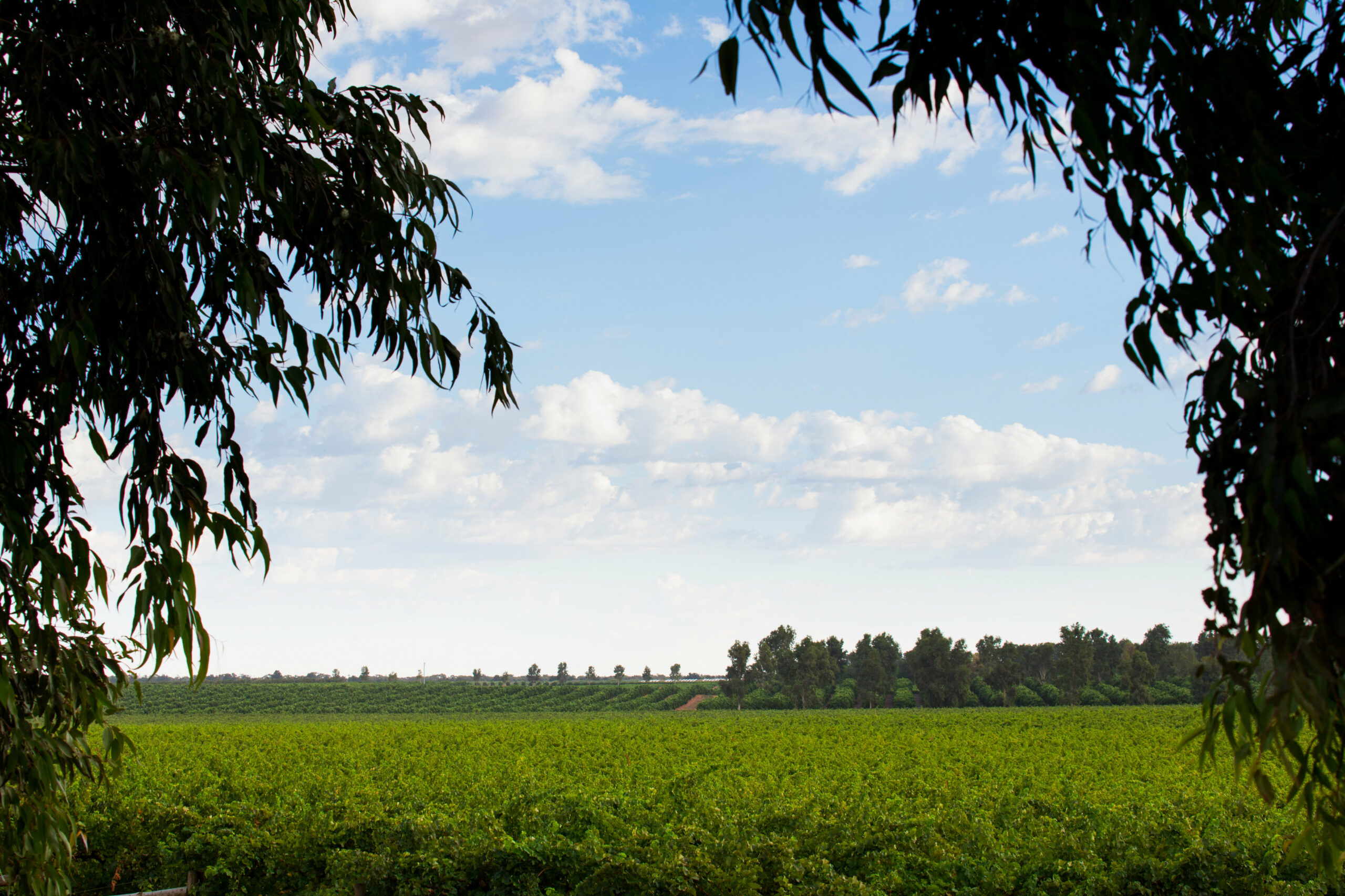
Bouchard Finlayson is a top class, internationally-renowned estate situated in Walker Bay, mid-way between Cape Point and Cape Agulhas (the most southerly tip of Africa). The climate is largely influenced by the nearby cold Atlantic Ocean rendering it one of the coolest wine-growing areas in the Cape. The Hemel-en-Aarde valley, home to Bouchard Finlayson, is surrounded and sheltered by a mountain barrier, formed by Galpin Peak (810 metres) and the Tower of Babel (1200 metres), which traps the cloud cover and moisture brought in from the sea by the prevailing wind.
The estate is committed to conservation and sustainable farming, and they strongly believe their BWI membership sets them apart from other winemaking regions in the world. BWI (Biodiversity and Wine Initiative) is a partnership between the South African wine industry and the conservation sector, aimed at protecting the Cape’s rich floral kingdom. To this end, only 19ha of their most precious resource – the land – is under vine in order to preserve the natural indigenous fynbos (a valuable ecosystem).
The attention to detail and commitment to excellence at Mollydooker is reflected in everything the estate does. The accolades Sarah Marquis has achieved over the last two decades read like an entry in the Guinness Book of Records: Australian Boutique Winemakers of the Year, Australian White Winemaker of the Year, three times McClaren Vale Bushing Queen, Robert Parker’s Wine Personality of the Year, World Cooperage Celebrated Winemaker and more trophies, ‘Best Wine’ awards and +94 Parker and Spectator scores than even she could have dreamt of!
Mollydooker (Aussie for left hander, because she is left handed) was established in March 2006 in the McLaren Vale, with a state-of-the-art winery and 114 acres of vineyards on the magic Seaview Ridge – home to most of the iconic McLaren Vale wines. Sarah is the sole owner and winemaker, running Mollydooker with the help of her team who continue to make the handcrafted wines for which they are rightly famous.
McLaren Vale – nestling between the Mount Lofty Ranges and the white, sandy beaches of the Gulf of St Vincent – is one of South Australia’s oldest, most picturesque wine regions. It is also one of the greenest, with its ongoing water use efficiency strategies and commitment to environmental sustainability.
It was here that the Lloyd family established their winery in 1969, on the predominantly terra rossa soils – soils favouring deep-coloured, well-structured red wines with great capacity for ageing. They released their first Shiraz in 1970, and now regularly win awards – indeed the Lloyd Reserve Shiraz is one of McLaren Vale’s greatest. Coriole have just started the certification process to organic – whilst they’ve farmed organically for many years they have now taken the decision to certify, a process they tell us feels harder and more time consuming than the organic viticulture itself!
Larry McKenna founded Escarpment in 1999 and proceeded to build a phenomenal reputation as the ‘Prince of Pinot’ crafting an impressive array of highly regarded wines. He continued to work closely with Australian wine estate Torbreck, who purchased the estate in 2019, to ensure the continued success of the wines before handing over his legacy to the now head winemaker, Tim Bourne (pictured above).
The vineyards are sited above a natural escarpment sitting above the Huarangarua River on ancient gravels. Overlooking them are the Aorangi Ranges where Maori legend has it that the Polynesian voyager Kupe abandoned 3 canoes. The upturned canoes are still clearly visible, silhouetted along the top of the ridge, and Kupe’s image takes pride of place on every Escarpment label. Escarpment is registered as a Sustainable NZ producer and is currently following a five-year plan to become organically certified.
Waipara Springs Winery is located in the heart of the Waipara Valley, just a 45 minute drive north of Christchurch in the South Island. Planted in the early 1980s and now covering some 26ha, the vineyard contains some of the oldest own-rooted Mendoza clone Chardonnay in New Zealand, providing the entirely estate-grown wines with a depth and intensity that only old vines can produce.
The Waipara Springs Estate Vineyard from which Premo wines are solely sourced has a terroir that renders wines totally unique. Derived from a prehistoric lake bed at the centre of the Waipara Valley floor the vineyard soils are a rich blend of clay and limestone. With vines sheltered from the prevailing easterly winds by the Teviotdale range, high midsummer heat combined with relatively low rainfall during the growing season and cold nights during harvest provide near perfect conditions for high quality fruit.
The wetlands of South Eastern Australia are integral in maintaining the health of the unique yet fragile ecosystems of inland Australia. Produced and bottled by Trentham Estate, the River Retreat range of wines is based on an initiative dedicated to raising awareness of these wetlands. Each purchase of the River Retreat label results in a donation to the Murray Darling Wetlands Working Group Ltd.

With degrees in horticulture from the University of Bath, Steve Pellett and Bridget Ennals set off, in true intrepid explorer mode, to travel through Africa then back to the UK to work as fruit technologists. However the beauty of Marlborough’s spectacular Awatere Valley captured their hearts, and lead to the creation of Stanley Estate in 2003. Situated at the top of New Zealand’s South Island, under the cool gaze of Mount Tapuae-O-Uenuku (the footprint of the rainbow), the estate takes its name from the ‘Stanley Rover’ in which Steve and Bridget travelled through Africa.
Over ten years Stanley Estates has made a big name for themselves, winning numerous major awards both domestically and internationally. Their dedication to, and connection with the land in which they work is obvious, indeed they signed up early to the NZ Sustainable Winegrowing programme, as they saw this as being the basis and philosophy of their vineyard practices.
In 2020, Stanley Estates was purchased by the family-owned Lake Road Wines in Gisborne. Steve Pellett has become a ‘grower’ for Stanley, continuing to supply grapes to new owners, brothers Steven and Andrew Blampied. Winemaker Eveline Fraser remains at the helm, ensuring consistency in the wines that are frequently acknowledged within the industry and embraced by the wine-loving public worldwide.
Owned by Stephen and Thea Farquharson and Stephen’s sister and brother-in-law, Jane and Geoff Bews, who are all committed to producing top quality grapes and wine, Wooing Tree Estate is a truly family-owned and -run business. Originally from farming backgrounds in North Otago and more recently working in IT both in Wellington and overseas, they all came back to Cromwell (Central Otago) to run the vineyard at the end of 2004 in time for their first vintage in 2005.
The estate is so named after The Wooing Tree, a local landmark that sits prominently in the middle of the vineyard. It has long been a place for locals to woo their lovers, and if it could talk, would have many a story to tell! These days it is not quite the private spot it once was, but they still have plenty of visitors proposing marriage and even getting married under the beautiful iconic tree, amidst the vines.
The Murphy family have grown grapes in the Murray Darling region of Australia, part of the Big Rivers, since 1909. They build on this experience to create their fruit-driven wines.
The grape selection and winemaking practices at Murphy Vineyards aim to highlight the fruit flavours with these appealing wines that show ripe fruit aromas and soft, rich palates. Murphy Vineyards have selected, from their own plantings, Chardonnay and Shiraz grapes of good sound quality which have displayed true varietal expression in the final wine.
After searching the Cape for the perfect site, he discovered a small apple orchard in the Elgin Valley, and Sutherland Vineyards was born.
Sutherland Vineyards is situated just 9 km off the Atlantic Ocean with altitudes of 140 to 250m above sea level. Due to this proximity, ideal cool climate conditions are created. The resulting wines are more balanced with great depth and complexity of flavour.
Thelema Mountain Vineyards is a family owned and managed wine estate, part of the spectacular Simonsberg Mountain range in Stellenbosch, South Africa and home to Thelema and Sutherland wines.
Gyles Webb abandoned his accounting career in Durban to become a winemaker. In 1983, with the help of his wife’s family, the McLean’s he bought Thelema – the beginning of a family legacy.
The manor house was restored and the first wines under the Thelema label were released in 1988. By the mid 90’s Thelema’s wines sold out within a month after release, making it one of the most sought-after wine estates in South Africa. The Webb family describe Thelema as “one of the most beautiful places on earth”.
Through the understanding of their optimal climate and soil type, Thelema have firmly entrenched themselves as one of the leaders in Cabernet Sauvignon, placing Stellenbosch Cabernets firmly on the global wine map.









